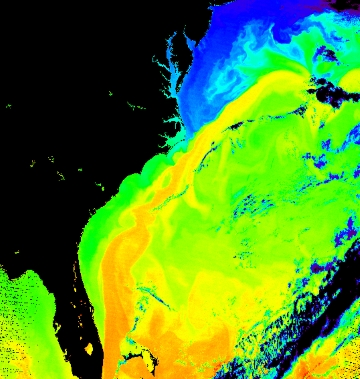711124_Weaker Stream_360 px width.jpg

The Gulf Stream is the warm-water current (warmer colors of this satellite image) that flows along the southeastern coast of North America. Credit: NASA
The Gulf Stream plays a big role in the weather and climate on both sides of the Atlantic Ocean. A recent study concluded that the Gulf Stream is slowing down. That could have an impact on everything from hurricanes to heatwaves.
The Gulf Stream is a strong current of warm water. It starts in the Gulf of Mexico, then flows up the East Coast of the United States. It then veers eastward into the North Atlantic, and finally around western Europe, where it warms part of the continent. The Gulf Stream is one of a network of currents that encircles the Atlantic Ocean.
Studies have suggested that the Gulf Stream is changing. And a study released in 2023 said it found the best proof of that to date.
Scientists analyzed observations collected since 1982. They looked at data from instruments in the water, undersea communication cables, and orbiting satellites. The scientists used computer models to combine the observations. Their work showed that the Gulf Stream had slowed down by about four percent over the past four decades.
The study says that the change could have an effect on Atlantic hurricanes, sea level along the American coastline, the frequency of droughts and floods in the U.S. and Europe, and more.
Researchers said they couldn’t conclude whether the slowdown was caused by climate change, natural ocean cycles, or a combination of the two. Regardless of the cause, a critical ocean current appears to be slowing down—with possibly dire consequences in the decades ahead.

